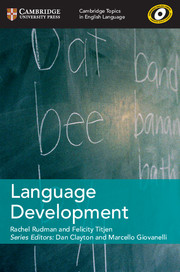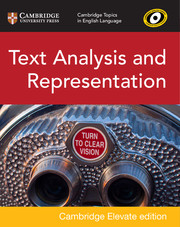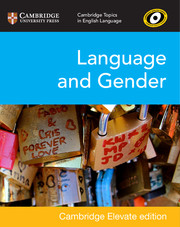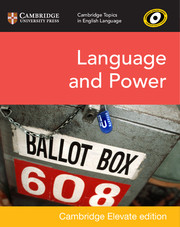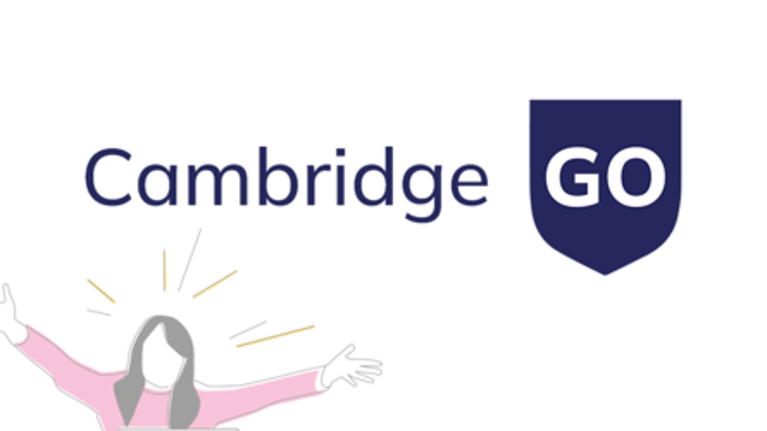Cambridge Topics in English Language Language Development
Overview
Language Development Digital edition is an introduction to how we learn to speak, read and write. It is suitable for advanced level students and beyond. Written with input from the Cambridge English Corpus, it considers the theoretical approaches to language development from early childhood to teenager. Language Development explores the lifelong process of learning a language, as well as the factors that affect it. Using activities to explain analysis methods, this digital resource guides students through modern issues and concepts. It summarises key concerns and findings, while providing inspiration for language investigations and non-examined assessments (NEAs) with research suggestions.
Features
- Personalise Digital editions to your needs – set homework, link to the web and share annotations with your class.
- Instruction in analysis techniques and research methodology, as well as examples of academic writing at an accessible level, give students models to follow for their own work.
- Examples from the Cambridge English Corpus give students access to prestigious academic global English research, as well as insight into corpus linguistics and techniques for corpus creation and analysis.
- Wider reading suggestions guide students towards broader topic exposure, encouraging them to research areas that interest them.
- Longer research tasks encourage a greater depth of application and provide inspiration for non-examined assessment (NEA).
- Written to support A Level and IB qualifications: in particular Cambridge International A Level English Language (9093) Paper 3 Text Analysis and Paper 4 Language Topics, AS & A Level English Language, AS & A Level English Language and Literature and IB English A.
- Short activities and exam-style questions provide practice and help students get a deeper understanding of key concepts.
- The Digital Edition is simple to navigate for both students and teachers – find notes quickly with highlights and bookmarks.
- Simple and easy to use, link directly into Cambridge Digital from Moodle, Blackboard and any other VLE.
- Access a library of Cambridge books anywhere, anytime whether online or offline (via the app). For more information, please visit cambridge.org/go.
- Accessibility Information: The accessibility information of this publication is unknown.
Contents
- 1. Learning to talk:
- 1.1. Stages of acquisition in young children
- 1.2. Further development: grammar and phonology
- 1.3. Discourse development
- 2. Theories of spoken language acquisition:
- 2.1. An overview of theories behind spoken language acquisition
- 2.2. Timeline of language acquisition
- 2.3. The influence of environmental factors
- 2.4. Child-directed speech and its characteristics
- 3. Learning to read:
- 3.1. Books for young children
- 3.2. Overlaps between spoken language and literacy acquisition
- 3.3. Shared reading: its purposes and functions
- 3.4. Reading development stages
- 3.5. Understanding the conventions of written text
- 3.6. Different methods of teaching reading
- 3.7. Cues and miscues
- 3.8. The primary national strategy
- 4. Learning to write:
- 4.1. How do children learn to write?
- 4.2. How do children learn to spell?
- 4.3. How does grammar develop?
- 4.4. Genre-based model of writing pedagogy
- 4.5. Concerns over writing engagement and achievement
- 4.6. Educational approaches to teaching writing
- 5. Later Learning:
- 5.1. What is teen talk?
- 5.2. Social media platforms
- 5.3. Talk in the secondary education context
- 5.4. The changing nature of reading as it develops and adapts
- 5.5. Development of writing as young people mature
- Ideas and answers
- References.
Brighter Thinking Blog
Keep up to date with the latest classroom tips and educational trends from our brighter thinkers.
Visit the blogCatalogues and Ordering
Looking for something in particular or just browsing? View our catalogues to see our full range of print and digital books.
View and downloadAdvice on useful tools
Advice on useful tools, activities and timetabling from teachers experiencing school closures.
Cambridge GO
All our supporting resources have now moved to Cambridge GO – the new home for your Cambridge digital content.
Listen to our podcast
Listen to our podcast to discover teaching inspiration & advice from leading educational thinkers.

